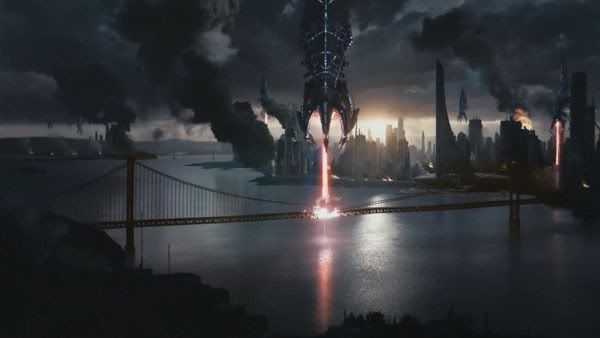This post has not been edited by the GamesBeat staff. Opinions by GamesBeat community writers do not necessarily reflect those of the staff.
Spoiler warning: This article discusses the ending of Mass Effect 3 in non-specific terms.
Most TV shows, movies, and video games fail to earn their clichéd “happily ever after.” The hero triumphs, the villain gets his/her comeuppance, and all is sunshine and rainbows. It feels phony. Real life isn’t like this, so a work of fiction must take great pains to achieve a believable fairy-tale conclusion. Mass Effect 3 takes the opposite tack. The sci-fi series hasn’t earned its downer ending.

I won’t purport to know what rankled the legions of internet fans irate over Mass Effect 3’s ending. But I’ll humbly suggest an explanation: The series began as Star Wars and ended as Black Hawk Down. Or, to put it more succinctly, it began as the original Star Wars trilogy and ended as the prequel trilogy.
Star Wars is hokey, corny, and outdated. The characters behave in such a manner that you accept such phoniness as a matter of course. And it works splendidly because of the canon’s consistency. The franchise went astray when it abandoned the light-hearted charm of the original trilogy and shoehorned political intrigue into the prequel trilogy. It didn’t fit, and the disconnect was jarring.
The Mass Effect series spent two games crafting one of the greatest space operas the medium has ever seen. I want to emphasize space opera for the connotations it denotes. The series evokes Star Wars and franchises about treks through the stars, and it succeeds admirably. But let’s face it — George Lucas doesn’t know good dialogue from a grain of sand. And Mass Effect follows suit.
Mass Effect is more gritty and violent than its celluloid forebears, but the series never strays from its space opera roots…until part 3. In the third installment, Mass Effect inexplicably switches gears and becomes a solemn meditation on war, suffering, and loss. Coupled with lazy writing, fleeting cameos, and an 11th-hour voyage into the bizarre, the game ends more abruptly than you can say “deus ex machina.”
As gamers, we’re not prepared for this radical shift in tone. The previous two installments do tackle weighty themes like genocide, slavery, and free will, but they don’t dwell on them. The nigh-unstoppable hero (Shepard) always wins the day. Most major and minor characters can survive Mass Effect 1 & 2, none the worse for wear, leading the gamer to believe that #3 bodes more of the same.
Mass Effect 3 fails as a narrative because its ending violates the rules of its own universe. Realistically, a team of crack space commandos shouldn’t be able to survive countless adventures unscathed. It strains credibility that such a squad wouldn’t suffer high casualties. But that’s ok. We accept this quirk and suspend our disbelief because Shepard is a fictional hero governed by fictional rules. You didn’t expect Luke Skywalker to die, did you? Of course not!
But Mass Effect 3 changes the rules. Commander Shepard spent two games kicking ass, taking names, and cheating death (literally). He/she was the figurative “chosen one,” miraculously immune to injury. And now suddenly, he/she is vulnerable and fragile. What??
By contrast, I point to the Game of Thrones book and TV series. Author George R. R. Martin kills off main characters with startling frequency and with little forewarning…just like in real life. Game of Thrones has no invincible protagonists or taboo topics. We expect a whiff of reality. The fictional universe operates under rules not dissimilar to our own. Game of Thrones could plausibly “earn” a dour (or at least ambiguous) ending because the series’ internal logic allows for it.
Want to remain unpredictable? Kill off a main character at an inopportune moment. Show us that the protagonists are vulnerable. Let the “bad guys” win early and often. In fact, skewer the notion of “good guys” and “bad guys.” In short, show us that your universe obeys reality.
Having Mass Effect end with such little fanfare violates its own rules. It needed to end with a huge, spectacular triumph. We had to witness our heroes ride off into the sunset because everything that came before it dictated only one plausible conclusion: a happy ending.
